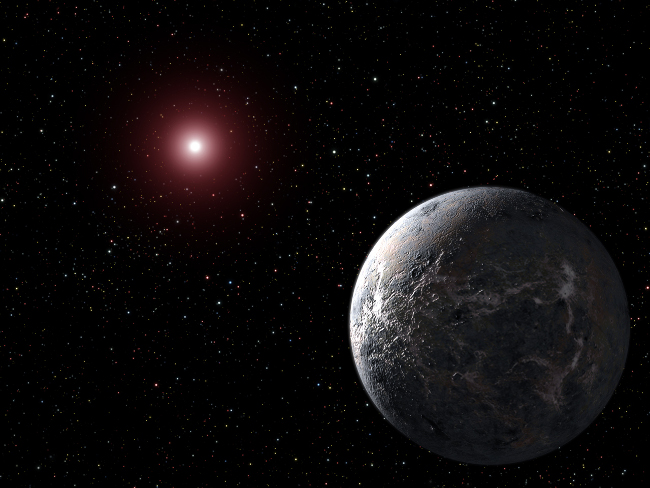The Marie Skłodowska-Curie actions support researchers at all stages of their careers, regardless of age and nationality. Researchers working across all disciplines are eligible for funding. The MSCA also support cooperation between industry and academia and innovative training to enhance employability and career development.
Exploring interfaces in ice giant planets using multi-scale molecular dynamics simulations
 Recipient : Mandy Bethkenhage, postdoctoral researcher
Recipient : Mandy Bethkenhage, postdoctoral researcher
Supervisor: Razvan Caracas
Laboratory: LGL-TPE
Duration: 24 months
"The ice giant planets Uranus and Neptune are believed to play a crucial role in the formation process of our Solar System and are prototypical for hundreds of exoplanets, so-called mini-Neptunes, which are discovered at ever increasing speed thanks to planet-hunting missions like Kepler, TESS, and PLATO.
Modeling the interior structure, magnetic dynamo, and thermal evolution of Uranus and Neptune has proven very challenging relying only on the Voyager 2 flyby data from the 1980s and ground-based observations. The key to improve these models is to investigate interfaces and thermal boundaries resulting from the properties of the material in their deep interiors. Hence, we perform molecular dynamics simulations on multiple scales to derive additional modeling constraints, which are experimentally challenging to obtain or even inaccessible.
We use accurate ab initio simulations to calculate a new equation of state to constrain the rock/ice ratio in planetary interior models. Subsequently, we fit potentials to the ab initio data to investigate up to 1 million atoms using classical molecular dynamics. For the first time, we are able to explore interfaces between the inner mantle and the core of an ice giant planet on a atomic level. The resulting thermal and transport properties will be used as essential inputs for novel interior structure and magnetic dynamo models for ice giant planets; particularly those in our Solar System. The project results will enhance the fellow's career prospects, make a significant contribution to the science excellence in Europe, and especially strengthen the science case for future Uranus and Neptune missions by ESA and NASA."






